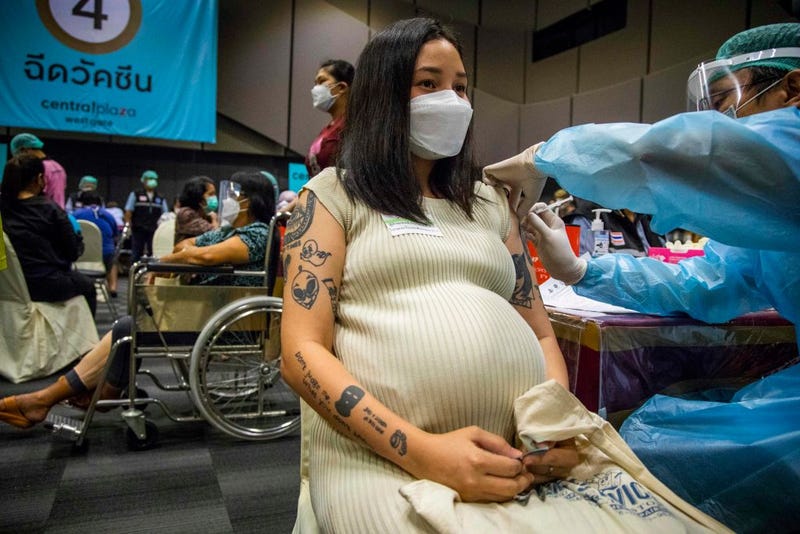
Expectant parents who received mRNA vaccinations against COVID-19 did not show any increased risk of miscarriage, said Minnesota researchers in a new study.
The HealthPartners Institute team—which only examined the two-dose mRNA vaccines from Pfizer-BioNTech and Moderna—published its conclusions in the Journal of the American Medical Association.
Scientists hope the lack of any additional threat of miscarriage encourages pregnant people to get the shot. Past studies have shown pregnant people are getting vaccinated at a lower rate, particularly 18- to 24-year-old Black and Hispanic women. Federal officials estimate nationwide only a quarter of pregnant women are vaccinated.
“Our data adds to a growing body of research that should give pregnant people confidence to get vaccinated against COVID-19, if they haven’t already,” said lead author Dr. Elyse Kharbanda. “It’s especially important for pregnant people to protect themselves against the virus because COVID-19 infections may impact them more severely and lead to birth complications.”
Dr. Kharbanda said this was the first large-scale analysis of COVID-19 vaccines and pregnancy. Nine hospital systems, including HealthPartners, contributed information. Collaborators analyzed data gathered from December 2020 to June 2021 on 105,000 patients in their early pregnancies, when they were at the highest risk of miscarriage.
The number of miscarriages among the unvaccinated was nearly identical to the number of miscarriages among the vaccinated group.
“The key finding is really that we did not detect an increased risk,” Kharbanda clarified, noting the vaccines had no impact on miscarriages.
Despite tragic, anecdotal cases of pregnant women dying from the disease, many have been hesitant to be vaccinated because initial clinical trials excluded pregnant women. There is no safety data for the demographic. Researchers’ studies, like this one, hope to assuage those concerns.

The Centers for Disease Control and Prevention and other top physicians groups recommend that pregnant people get vaccinated against COVID-19.
Duke University researchers blame the Delta variant for a surge of hospitalizations in those who are pregnant.
“There has been no concern whatsoever that a woman trying to conceive, the vaccine would have any impact on their ability to conceive,” Dr. Geeta Swamy, professor of gynecology, said during a Wednesday event.
“Women are no more likely to get the infection than other people, but if they get the infection they’re at higher risk for complications, specifically admission to the hospital, requiring ICU admission, mechanical ventilation, and even a higher risk of mortality or death,” Swamy added.
“There is nothing to suggest that vaccination itself leads to anything that can cause pre-term birth,” she continued. “There is no evidence that vaccination causes early pregnancy loss.”


